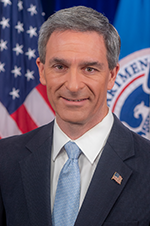Acting Director of USCIS Boasts of Increased Red Tape and Restrictions for Employment-Based Immigration
October 31, 2019
In an October press release, the U.S. Citizenship and Immigration Services (USCIS) announced their statistics for the fiscal year of 2019 and celebrated that they “have achieved many of President Trump’s goals to make our immigration system work better for America.” However, the accomplishments that USCIS and its acting director, Ken Cuccinelli, are celebrating are making the immigration system more restrictive, bureaucratic, and suspicious of those applying for or extending their legal status. Denial rates for new H-1B petitions have leapt from 6% to 32% in just four years, and USCIS has doubled the percentage of H-1B cases with Requests for Evidence since Trump took office. In the first quarter of FY 2019, the percentage of H-1B cases with Requests for Evidence was even triple the FY 2016 percentage. Previous government documents also show that USCIS adjudicators have been given specific instructions to decrease H-1B approvals and increase Requests for Evidence, even if they lack justification for the decision.
A recent Forbes article has brought together several USCIS policies, memos, and decisions under Trump to show their consistent efforts to limit not only family-based and undocumented immigration, but employment-based immigration as well. The article includes criticism from Wharton professor Britta Glennon, who warns that H-1B restrictions could seriously damage the economy by turning away talented workers and letting “the U.S.’s innovative capacity fall behind.” According to the National Foundation for American Policy, about 80% of full-time graduate students in electrical engineering and computer science are foreign nationals, yet USCIS has specifically targeted computer programmers by challenging their categorization as a Specialty Occupation in internal documents previously kept from public knowledge.
USCIS acting director Ken Cuccinelli has boasted that his agency is “safeguarding our nation’s immigration system” and reducing immigration fraud. However, immigration professionals and advocates like Glennon fear that USCIS and the Trump administration are using this language of suspicion and criminalization to deter and deny workers who contribute greatly to their communities and industries.
TAGS: Employment-Based Immigration, H-1B, Trump, USCIS
June 16, 2025
Department of State Releases July 2025 Visa Bulletin The DOS released its July 2025 Visa Bulletin. For July 2025, USCIS determined that for all family-sponsored preference categories, you...MoreJune 12, 2025
LHSCD, Wendy Castor Hess and Nicole Simon Once Again Recognized by Chambers & Partners Congratulations to our firm’s partners Nicole Simon and Wendy Castor Hess for ranking in the Chambers USA 2025 Guide as...More




